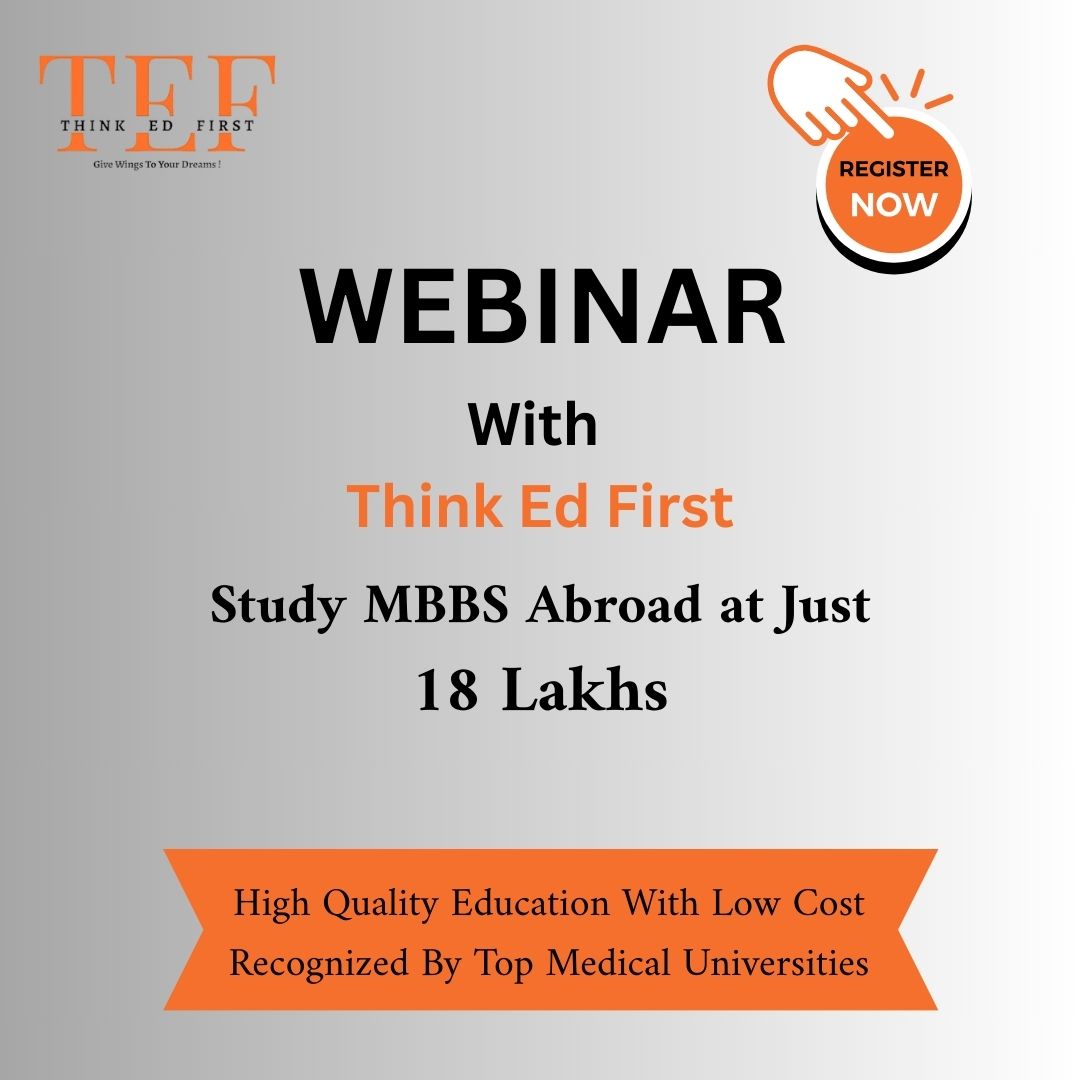As a medical graduate, you’ve worked hard to earn your degree. Now, the next step is deciding how to take your career forward. For many, this means choosing the right licensing exam to practice medicine in their desired country.
Indian students often face this critical decision. Should you focus on a test that allows you to work in the United States? Or is a different exam better suited for opportunities in the United Kingdom? Each path has its own requirements, challenges, and rewards.
We’ll explore the key differences between these exams. We’ll also discuss how your education, whether from a local or international university, prepares you for these tests. By the end, you’ll have a clearer understanding of which option aligns with your career goals.
Choosing the right exam is more than just a test of knowledge. It’s about shaping your future as a doctor. Let’s dive in and find the best path for you.
Overview of MBBS Education in Russia
For many aspiring doctors, studying medicine abroad opens doors to global opportunities. Russia has become a popular destination for students seeking quality education at affordable costs. With top-ranked universities and a focus on practical training, it offers a strong foundation for a successful career.
Benefits of Studying Medicine in Russia
One of the main reasons students choose Russia is its affordable tuition fees. Compared to other countries, the cost of studying here is significantly lower. Additionally, the living expenses are budget-friendly, making it an attractive option for international students.
Russian medical universities are recognized globally by organizations like WHO and UNESCO. This ensures that your degree holds value worldwide. The medium of instruction is English, which eliminates language barriers for international students.
Quality of Infrastructure and Learning Environment
Russian universities boast state-of-the-art laboratories and research centers. These facilities provide students with hands-on experience, essential for building practical skills. The campuses are well-equipped, offering a conducive environment for learning.
Students also benefit from a multicultural atmosphere. With peers from over 25 countries, it’s an enriching experience that broadens perspectives. The focus on patient care and research prepares graduates to excel in their careers.
For more details on why Russia is a top choice for medical education, visit our comprehensive guide.
Recognition, Accreditation, and Global Opportunities
Earning a medical degree is just the first step toward a global career. For students, the value of their education lies in its recognition and accreditation. Graduates from Russian medical universities benefit from international recognition, opening doors to opportunities worldwide.
International Accreditation and WHO Recognition
Russian medical universities are accredited by leading global organizations like the World Health Organization (WHO) and UNESCO. This recognition ensures that degrees hold value across borders. Graduates can confidently pursue licensing exams in various countries, knowing their credentials are accepted.
For example, Indian students can apply for the Foreign Medical Graduates Examination (FMGE) after completing their studies. Similarly, graduates aiming to practice in the United States can take the USMLE. These pathways are made accessible due to the global recognition of Russian degrees.
Expanding Career Prospects Worldwide
The recognition of Russian medical degrees unlocks career opportunities in multiple countries. Graduates can explore roles in the USA, UK, Canada, and beyond. Each country has its own licensing requirements, but the foundational education provided by Russian universities meets these standards.
Here’s a quick overview of global recognition bodies and their significance:
| Country | Recognition Body | Key Benefit |
|---|---|---|
| USA | ECFMG | Eligibility for USMLE |
| UK | GMC | Access to PLAB test |
| Canada | MCC | Qualification for MCCQE |
| India | NMC | Eligibility for FMGE |
This global recognition not only facilitates licensing but also opens doors to research, teaching, and clinical practice. For students, it’s a pathway to a fulfilling and diverse career in medicine.
USMLE vs PLAB after MBBS in Russia
Choosing the right licensing exam is a pivotal decision for medical students. It determines where and how you can practice medicine globally. Two popular options are the USMLE and PLAB, each with its own structure and requirements.
Exam Structure and Eligibility Criteria
The USMLE is a three-step test designed for those aiming to practice in the United States. Step 1 focuses on basic medical knowledge, Step 2 on clinical skills, and Step 3 on patient management. Students can take Step 1 after completing their second year of medical school.
On the other hand, the PLAB exam is divided into two parts. PLAB 1 is a written test, while PLAB 2 assesses clinical skills through an OSCE format. This exam is essential for those looking to practice in the UK. It also requires proof of English proficiency, such as an IELTS score of 7.0 or higher.
Comparing the Pathways: Benefits and Challenges
Both exams have unique advantages. The USMLE offers a structured pathway to practice in the USA, a country known for advanced medical research. However, it requires significant preparation time and resources.
The PLAB, meanwhile, is shorter and focuses heavily on clinical skills. It’s ideal for students who prefer a more practical approach. Yet, it limits opportunities to the UK, unlike the USMLE, which is recognized globally.
| Aspect | USMLE | PLAB |
|---|---|---|
| Steps/Phases | 3 Steps | 2 Parts |
| Focus | Knowledge & Patient Management | Clinical Skills |
| Eligibility | After 2nd Year of Medical School | After MBBS Degree |
| Language Requirement | None | IELTS 7.0 or Higher |
Ultimately, the choice depends on your career goals and preferred country of practice. Both exams are challenging but rewarding, opening doors to a successful medical career.
Navigating Licensing Examinations and Screening Tests
Navigating the path to becoming a licensed doctor involves clearing rigorous examinations and meeting specific criteria. For students, especially those who completed their medical education abroad, understanding these processes is crucial. We’ll explore the mandatory FMGE screening, the upcoming NExT exam, and steps to secure a medical license abroad.

FMGE, NExT, and Other Screening Processes
The Foreign Medical Graduates Examination (FMGE) is a mandatory test for Indian students who studied medicine abroad. Conducted twice a year by the National Board of Examinations (NBE), it ensures graduates meet the standards set by the National Medical Commission (NMC). The exam consists of 300 multiple-choice questions, divided into two parts, each lasting 150 minutes.
To pass, candidates must score at least 150 out of 300. The FMGE assesses knowledge across Pre-Clinical, Para-Clinical, and Clinical phases of the MBBS curriculum. After passing, graduates must complete a one-year internship in a recognized hospital to apply for permanent registration with the NMC.
An upcoming alternative is the National Exit Test (NExT), designed to streamline the licensing process. While details are still evolving, NExT aims to combine licensing and postgraduate entrance exams into a single test. This could simplify the pathway for students seeking to practice medicine in India.
Steps to Secure a Medical License Abroad
For students aiming to practice outside India, the process varies by country. Most require clearing a licensing exam, such as the USMLE for the USA or the PLAB for the UK. These exams assess both theoretical knowledge and clinical skills, ensuring graduates meet local standards.
Here’s a comparison of FMGE and NExT to help students understand their options:
| Aspect | FMGE | NExT |
|---|---|---|
| Purpose | Licensing for Indian Practice | Licensing & PG Entrance |
| Frequency | Twice a Year | Once a Year (Proposed) |
| Format | 300 MCQs | Combined Theory & Practical |
| Eligibility | MBBS Graduates | Final Year MBBS Students |
Securing a medical license abroad involves researching specific requirements, preparing for the relevant exam, and completing any additional steps like internships or language tests. With proper planning, students can successfully navigate these challenges and achieve their career goals.
Pursuing Postgraduate Studies and Specializations
Deciding on postgraduate studies is a crucial step for medical graduates. It allows you to specialize in a specific field, enhancing your skills and career prospects. Whether you choose to study domestically or abroad, the right program can shape your future as a doctor.
Opportunities in the USA, UK, Canada, and Beyond
Countries like the USA, UK, and Canada offer robust postgraduate programs for medical graduates. These programs provide advanced clinical training and research opportunities. For example, the USA offers MD and MS programs, while the UK focuses on specialized training through the NHS.
Canada is another popular destination, known for its residency programs and emphasis on patient care. Each country has its own eligibility criteria, such as clearing licensing exams or providing proof of language proficiency. Researching these requirements is essential for a smooth application process.
Deciding Between Domestic and International PG Programs
Domestic postgraduate programs in India, such as MD and MS, are highly competitive. Government medical colleges are particularly sought after due to their affordability and quality. However, limited seats make it challenging for many students to secure admission.
International programs, on the other hand, offer diverse opportunities and exposure to global healthcare systems. While they may involve higher costs, the benefits of advanced training and networking often outweigh the investment. Consider factors like research opportunities, clinical exposure, and long-term career goals when making your decision.
Specializing early can significantly impact your career growth. Whether you choose to study in India or abroad, postgraduate studies open doors to advanced roles in medicine. Take the time to explore your options and make an informed choice that aligns with your aspirations.
Securing Internships and Residency Programs
Internships and residency programs are critical for shaping a medical graduate’s career. They provide hands-on training, refine clinical skills, and prepare students for real-world challenges. For Indian students, especially those who studied abroad, these programs are essential steps toward securing a medical license and advancing in their field.
Hands-on Training in Leading Medical Institutions
Clinical internships offer practical training that complements theoretical knowledge. They allow students to work directly with patients, gaining experience in diagnosis, treatment, and care. Leading medical institutions provide structured programs that focus on various specialties, such as surgery, internal medicine, and pediatrics.
For example, many Indian students who complete their MBBS in Russia return to India for internships. These programs are often conducted in government or private hospitals, offering exposure to diverse medical cases. Such experiences not only enhance skills but also improve eligibility for competitive residency slots.
Steps to Secure Residency Programs
Residency programs are the next step after internships. They provide advanced training in a chosen specialty and are crucial for career growth. To secure a position, students must:
- Research programs that align with their career goals.
- Prepare a strong application, including letters of recommendation and a personal statement.
- Clear any required exams or assessments, such as the FMGE in India.
Early planning is key. Many residency programs have limited seats, and competition is intense. Students should start preparing during their internship to increase their chances of success.
Internships and residencies are more than just training opportunities. They are stepping stones to a successful career in medicine. By focusing on practical skills and gaining valuable experience, students can confidently navigate their path to becoming skilled doctors.
Planning for Long-Term Career Growth and Mentorship
Building a successful medical career requires more than just academic excellence. It involves strategic planning, continuous learning, and strong mentorship. For students, these elements are crucial to thriving in the competitive field of medicine.
Continuous Professional Development and Research
Staying updated with medical advancements is essential for career growth. Attending seminars, workshops, and conferences helps students gain new knowledge and skills. Research projects also play a vital role in enhancing expertise and credibility.
Here are some effective strategies for continuous development:
- Enroll in Continuing Medical Education (CME) courses.
- Participate in clinical trials and research studies.
- Publish findings in reputable medical journals.
Networking and Mentorship for Future Success
Networking with experienced professionals can open doors to job opportunities and guidance. Joining professional organizations like the American Medical Association (AMA) or the British Medical Association (BMA) provides access to mentorship programs.
Mentorship offers personalized advice and support, helping students navigate challenges. Building a robust support system is key to achieving long-term career goals.
| Strategy | Benefit |
|---|---|
| CME Courses | Stay updated with medical advancements |
| Research Projects | Enhance expertise and credibility |
| Professional Organizations | Access mentorship and networking opportunities |
For students exploring alternative pathways, such as MBBS without NEET, mentorship and professional development remain critical. By focusing on these areas, students can confidently plan their future and achieve their career aspirations.
Conclusion
Choosing the right path after completing your degree is a significant step for any student. Whether you aim to practice medicine in one country or explore opportunities globally, thorough preparation is key. Each exam has its unique requirements, but with dedication, you can achieve your goals.
Accreditation and licensing play a vital role in shaping your career. They ensure your degree is recognized worldwide, opening doors to diverse opportunities. Postgraduate studies and continuous professional development further enhance your skills and knowledge.
For Indian students, studying abroad offers a chance to gain global exposure and quality education. It’s essential to plan strategically and seek mentorship for long-term growth. With the right approach, you can build a fulfilling career in medicine.
Explore more about affordable and quality medical education abroad to make informed decisions. Take the next step with confidence and shape your future as a skilled doctor.





